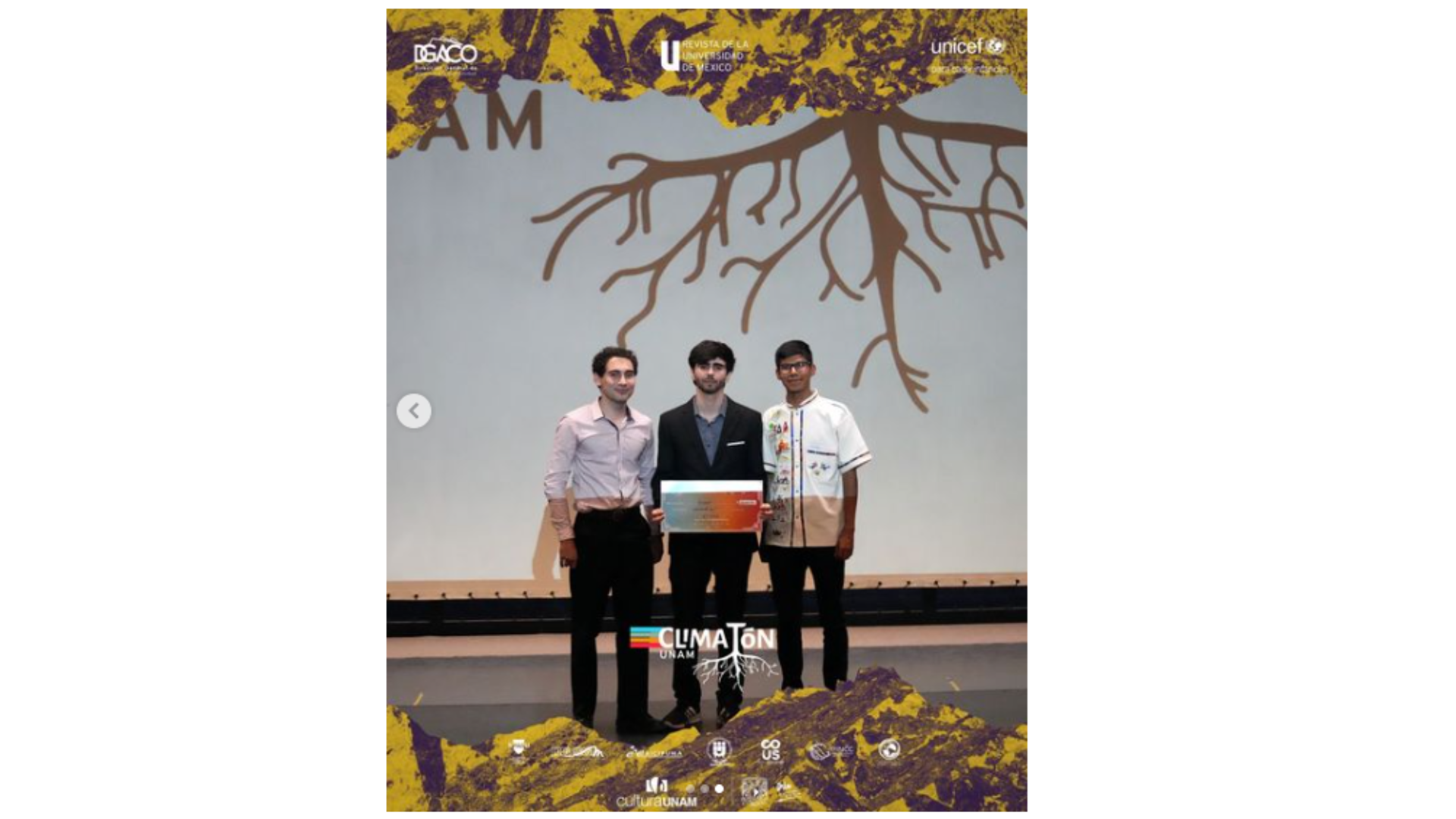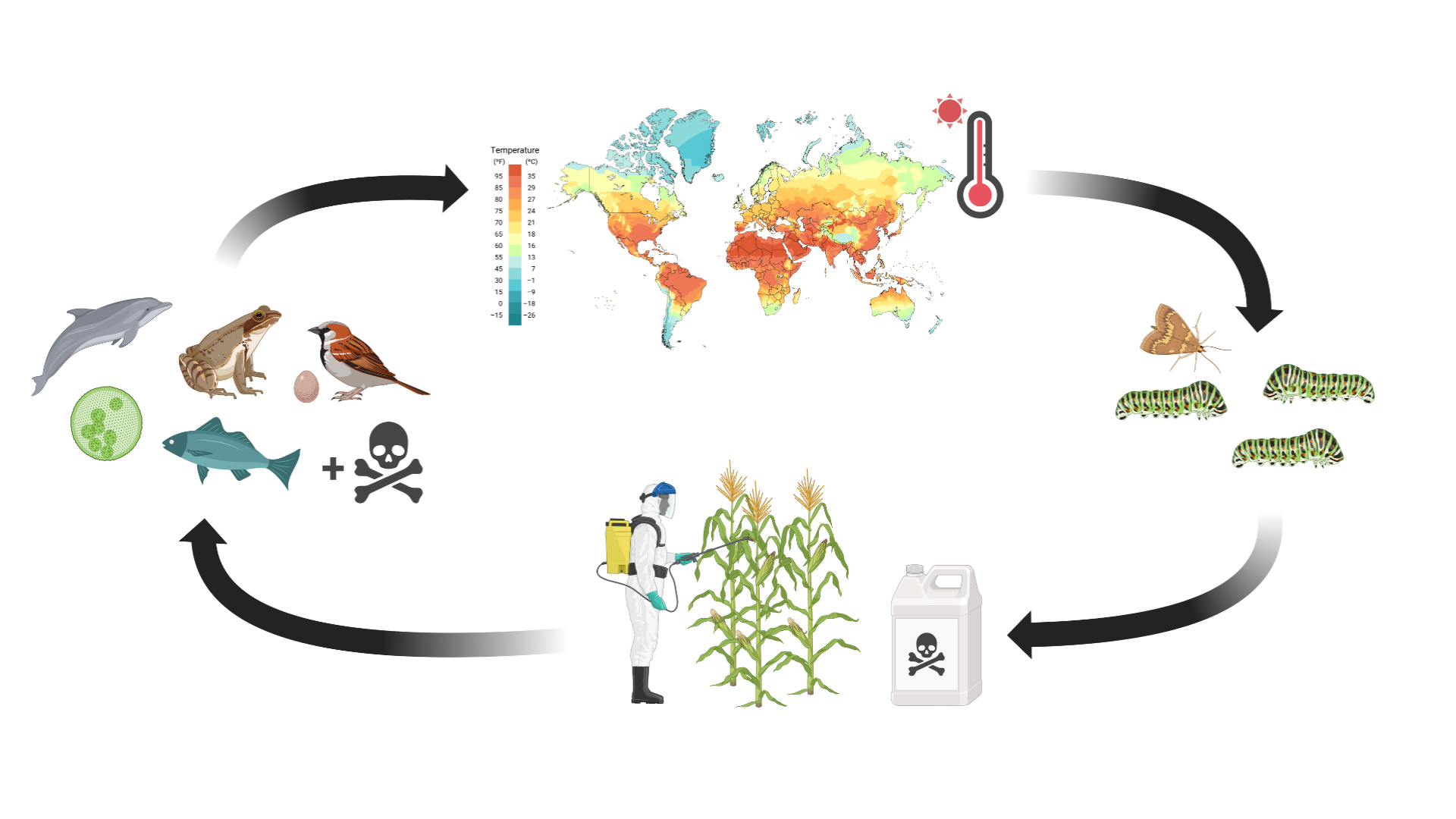Climaton UNAM 2024
The competition
We participated in the fourth edition of El Climaton UNAM, a nationwide competition aimed at mobilizing young people to tackle the climate emergency in Mexico. Organized by UNICEF and UNAM, this initiative fosters collective action and environmental awareness. We are proud to have won 3rd place with our project, Piper (which name we changed to Agropip). You can check them out on Instagram as @climatonunam.

It consisted of six phases over a period of about 50 days. It was a comprehensive experience that focused on providing us with a deep understanding of climate change in Mexico as well as giving us access to various spaces, such as panel discussions with experts, personalized advice to receive constructive feedback, idea labs, mentoring with specialists in various areas, constant evaluations, and collaborations between teams.
Feedback and improvements to the project
The feedback we received during the Climaton was transformative and completely changed the way we viewed Agropip. One of the most impactful insights was the emphasis on not becoming overly attached to our solution, despite the significant effort we had invested. The experts stressed that for our project to truly make a difference, our commitment needed to be to solving the problem, not to preserving our original idea. As a result, they challenged us to temporarily let go of our solution and explore alternative approaches, in case our initial plan did not work as expected.
This exercise led us to propose an Integrated Pest Management (IPM) strategy, aligning with SDG 2 (Zero Hunger) by promoting resilient agricultural practices. Instead of relying solely on one solution, we developed a multidisciplinary approach aimed at fostering a more sustainable farming system. This strategy combined activism to push for improved governance and legislation with direct engagement with farmers to understand their perspectives.
We also recognized the urgent need to educate farmers about pesticide safety, addressing SDG 3 (Good Health and Well-Being), as many farmers overlook safety precautions, leading to pesticide poisoning and health risks.
We learned the importance of incorporating a gender perspective into our solution, aligning with SDG 5 (Gender Equality). In Mexico, the majority of farmers (about 80%) are men, and they are directly impacted by agricultural challenges. Therefore, our approach must be sensitive to the prevailing culture of masculinity in rural areas.
On the other hand, women often handle household tasks and face a different set of challenges, such as dealing with pesticide runoff that contaminates water supplies. This made us realize the importance of addressing the issue from various angles to ensure it resonates with all stakeholders.
We gained insights into sustainable farming techniques that contribute to environmental resilience and pest control, supporting SDG 12 (Responsible Consumption and Production). Practices like polyculture (growing multiple crops together) can reduce the likelihood of pest outbreaks. In Mexico, several traditional farming methods, such as the Milpa system, could be promoted to improve both environmental and human well-being. Furthermore, biological control became a vital alternative, as natural predators of the fall armyworm could be utilized to manage pest populations, which ties into SDG 15 (Life on Land) by emphasizing the preservation of biodiversity and ecosystem health. Maize fields located in more biodiverse areas tend to support a greater number of natural predators, highlighting the need for ecosystem preservation.
During the Climaton, we received advice and evaluation to conducted field tests in Cosala, Sinaloa, using a prototype of Agropip, an extract of piperamides not produced through synthetic biology. We were strongly encouraged to take this step, as it was crucial for assessing the project's viability. As outlined in the Field Work section, these tests yielded positive results, reinforcing the potential of our solution to address the challenges we aim to tackle.
Throughout the Climaton, we benefited from exclusive consultations with experts in various fields. A biologist and activist from Greenpeace, a climatologist specializing in water systems, and a veterinarian focused on the relationship between agriculture and global warming all provided valuable insights. Their feedback emphasized the importance of a robust business plan, which we later developed for iGEM and made available in the corresponding section of this wiki.
Another key recommendation was to be mindful of horizontal gene transfer when working with antibiotic resistance markers. This advice led us to integrate our construct into the genome for better biosafety, addressing SDG 3 (Good Health and Well-Being) by improving biosecurity. Additionally, we were reminded that no system can be 100% sustainable, and that while our solution is promising, it may have unintended effects on native insect species. This prompted us to focus on optimizing its implementation to minimize environmental impact.
As this was a climate change competition, one major critique was the need to emphasize the connection between our project and SDG 13 (Climate Action) more clearly. We established that pesticides severely damage ecosystems, which play a crucial role in regulating the Earth's climate. This degradation reduces the planet's resilience to climate change and can even exacerbate it. Furthermore, climate change facilitates the spread of pests, increasing reliance on hazardous pesticides, thereby creating a vicious cycle. The interconnection between these issues is illustrated in the following figure:

Conclusion
Overall, the feedback was incredibly positive, and the experts were enthusiastic about our proposal. Their insights helped refine our approach and reinforced our commitment to making Agropip as impactful as possible.
Winning the 3rd prize was not the only reward, since participating in this initiative provided us with one of the most valuable tools we can imagine: the opportunity to establish meaningful connections with experts in diverse areas. These relationships not only enriched our experience during this period, but also made it possible for us to maintain contact for future consultations. The willingness of these professionals to continue sharing their knowledge and support is an invaluable resource that will allow us to continue improving the project and deepening our capabilities.